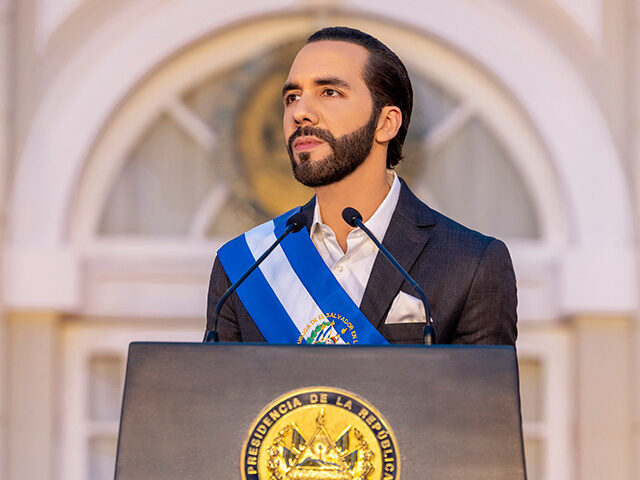The government of El Salvador announced Friday that it initiated the process to gain the approval of the International Atomic Energy Agency (IAEA) to develop and use nuclear energy.
“El Salvador is going nuclear,” President Nayib Bukele posted on social media on Friday.
If successful, El Salvador will become the first Central American country to use nuclear energy and the third in Latin America, following Mexico, Brazil, and Argentina.
General Director of Energy, Hydrocarbons, and Mines of El Salvador Daniel Alvarez announced Friday evening on social media that El Salvador had signed the corresponding initial agreements with the IAEA for the “peaceful use of nuclear energy.”
“Our task and goal is to decarbonize the energy matrix and boost our country’s development,” Alvarez’s message read. “The use of nuclear energy for peaceful purposes is an important starting point and a turning point for our energy sector.”
“On this day we have made great strides; what they did not do in more than 40 years, we have done in only one year,” he continued.
Nuestra tarea y objetivo es descarbonizar la matriz energética e impulsar el desarrollo de nuestro país.
El uso de la energía nuclear con fines pacíficos es un punto de partida importante y de inflexión para nuestro sector energético.
Este día hemos dado grandes pasos; lo que… https://t.co/LurbQrtYcL
— Daniel Alvarez 🇸🇻 (@daalvarezc) March 22, 2024
Alvarez and Vice Foreign Minister Adriana Mira delivered El Salvador’s request documentation to the IAEA during a visit to the agency’s headquarters in Vienna, Austria. According to a statement from the Salvadoran Foreign Ministry, IAEA Director Rafael Mariano Grossi asserted that El Salvador “is committed to decarbonization, diversifying its energy matrix.”
The documentation that El Salvador submitted reportedly included the Agreement on Privileges and Immunities of the IAEA, the signing of a Convention on Nuclear Safety, and the signing of the Vienna Convention on Civil Liability for Nuclear Damage.
El Salvador is committed to decarbonization, diversifying its energy mix and benefitting from peaceful nuclear applications. Important to receive legal instruments from 🇸🇻 Deputy FM @AdrianaMiraSV and @DGEHMSV’s @daalvarezc, enabling nuclear’s safe and secure use. pic.twitter.com/eQhq1iEYWI
— Rafael MarianoGrossi (@rafaelmgrossi) March 22, 2024
“Our country is developing in all areas, and energy is one of them. We are not only growing, but we are also doing so in a sustainable way through the diversification of energy sources,” Mira wrote on social media.
“With this initiative, the Government of El Salvador is taking another step towards changing the energy matrix to improve the quality of life of Salvadorans,” a statement from the Salvadoran Communications Secretary reportedly read.
According to information that El Salvador’s energy directorate published, 42.4 percent of the nation’s electricity comes from non-renewable resources, such as liquified gas and crude oil. The rest comes from renewable sources, such as hydroelectric and geothermal power plants, wind turbines, and biomass.
Before the recent IAEA application, El Salvador and the Thorium Energy Alliance signed a memorandum of understanding on March 14 for the development of thorium-powered reactors and thermal energy storage systems.
El Salvador reportedly increased its energy exports by 86 percent during 2023, amounting to $74.6 million worth of electric power exported to the region, becoming the first supplier of the resource in the Central American market, followed by Panama, Costa Rica, Honduras, and Nicaragua.
Christian K. Caruzo is a Venezuelan writer and documents life under socialism. You can follow him on Twitter here.

COMMENTS
Please let us know if you're having issues with commenting.